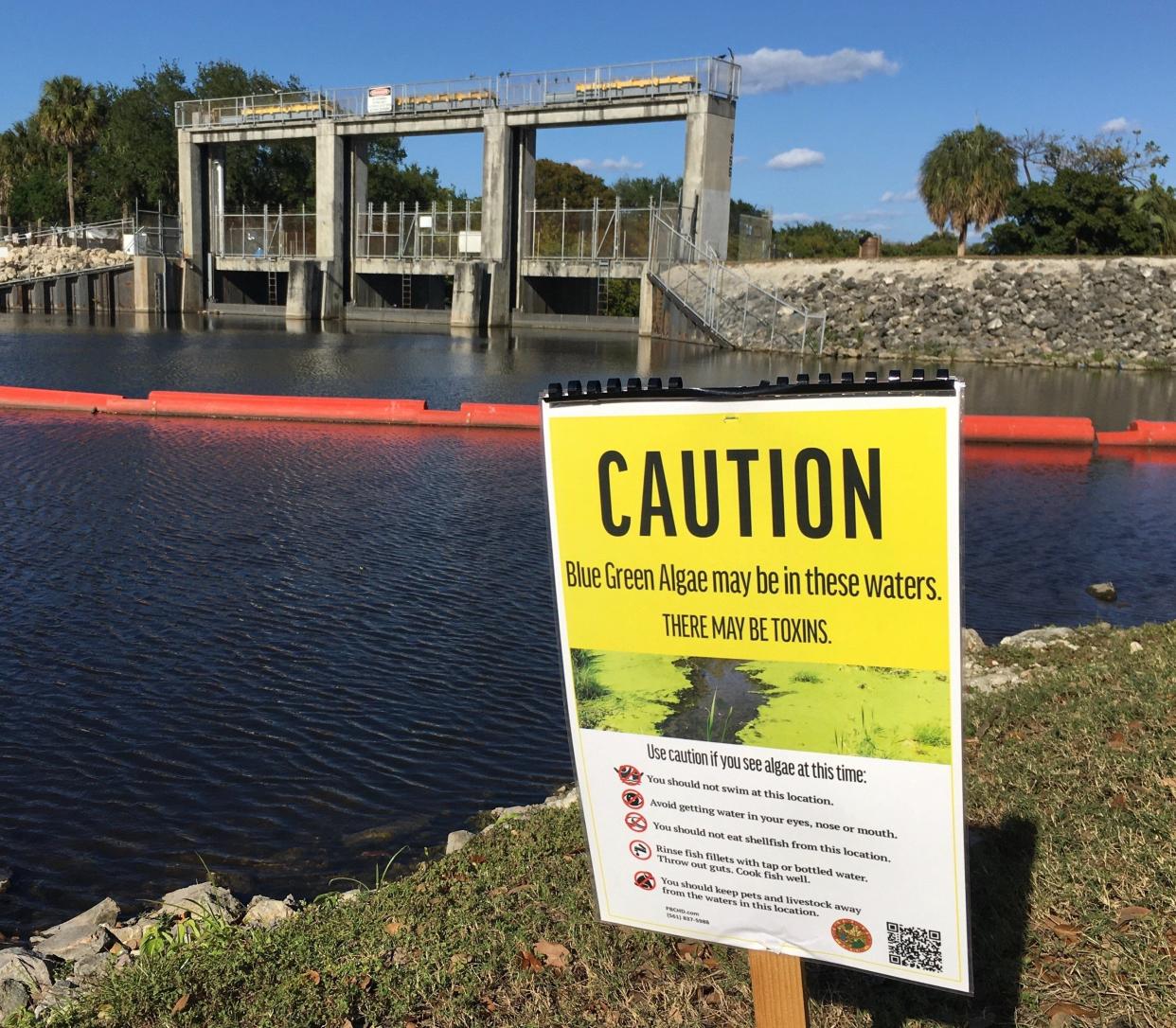Palm Beachers warned about water supply safety after testing reveals cloudiness issues

Three years after being warned not to drink the tap water because a toxin produced by blue-green algae was discovered in the town's water supply, Palm Beach residents were cautioned once again Thursday about the safety of their water.
A late-afternoon alert posted to the town's website warned that recent samples collected from the city of West Palm Beach's water treatment process as part of "regular and routine testing" exceeded compliance for turbidity (cloudiness) units. The town receives its drinking water from the city of West Palm Beach under a contract that expires in 2029.
Related: 'A very serious decision': Palm Beach weighs options for water contract with West Palm
According to the town, turbidity does not cause health effects, but those with severely compromised immune systems, have an infant, are pregnant, or are elderly may be at increased risk and should seek advice from their health-care providers about drinking the water.
For more information, residents are asked to contact the West Palm Beach Public Utilities Laboratory manager by calling 561-822-2269. Residents also are urged to review West Palm Beach's entire public notification regarding this matter.
West Palm Beach has been conducting an annual chlorine disinfection flush of its water treatment plant and drinking water system since July 5.
The flush involves switching from the current chloramine disinfection to free-chlorine disinfection, and is expected to run through July 26, according to the town.
Palm Beach officials continue to consider a choice of providers to supply water to the island once the town's current agreement with West Palm Beach ends.
After reviewing six options provided by environmental consultant Kimley-Horn in 2022, the town narrowed its list to two: continuing the current water-supply contract with West Palm Beach and collaborating on a membrane-technology upgrade at its treatment plant; and contracting with the city of Lake Worth Beach to provide water.
During an address to the Palm Beach Civic Association in April, Mayor Danielle Moore said both options have advantages and disadvantages, and the council plans to carefully weigh all of them.
"The city of West Palm Beach does not yet have the membrane technology that I think our residents demand," she said. "Lake Worth Beach does have that availability, but has infrastructure issues that would be very disruptive to the town. So the council is going to have to work long and hard to continue to study the issue and figure out which is the best."
Council member Lew Crampton said Friday he and his colleagues would consider current water safety issues as they deliberate on selecting a new water provider.
"The council is going to be insisting upon a technology that hopefully will not result in the creation of that kind of turbidity, because it's RO (reverse osmosis) technology," he said. "As a matter of how the facility is operated, we do have to be concerned about it. But there was notice, and the matter is being taken care of. I'm still confident that we can work something out either with West Palm Beach or with Lake Worth Beach in the months to come."
Council President Bobbie Lindsay said both of the town's finalists are capable of delivering a state-of-the-art, full membrane-based water filtration system that can remove contaminants at the molecular level to deliver safe, toxin-free, drinking water to residents, businesses and visitors.
"Our residents expect to turn on the faucet and drink good-tasting, contaminant-free drinking water," she said.
In new comments Friday, Moore said she was heartened that Palm Beach officials were notified immediately of the testing results, which was in sharp contrast to what occurred three years ago.
West Palm Beach officials took eight days to notify their counterparts in Palm Beach and South Palm Beach that the dangerous toxin cylindrospermopsin had been discovered in the city's water supply.
"We were notified rather quickly, which goes to show the really wonderful, much improved communication between the town of Palm Beach and the city of West Palm Beach," said Moore, who wrote a letter to West Palm Beach Mayor Keith James in May 2021 to express her concerns with the lack of communication between the two municipalities regarding its water supply. "That is a plus. The town worked very hard, and so did the city of West Palm Beach, to make sure that we have clear and open communication regarding things like that."
Jodie Wagner is a journalist at the Palm Beach Daily News, part of the USA TODAY Florida Network. You can reach her at jwagner@pbdailynews.com. Help support our journalism. Subscribe today.
This article originally appeared on Palm Beach Daily News: Concerns about water supply safety spark warning to Palm Beach residents

